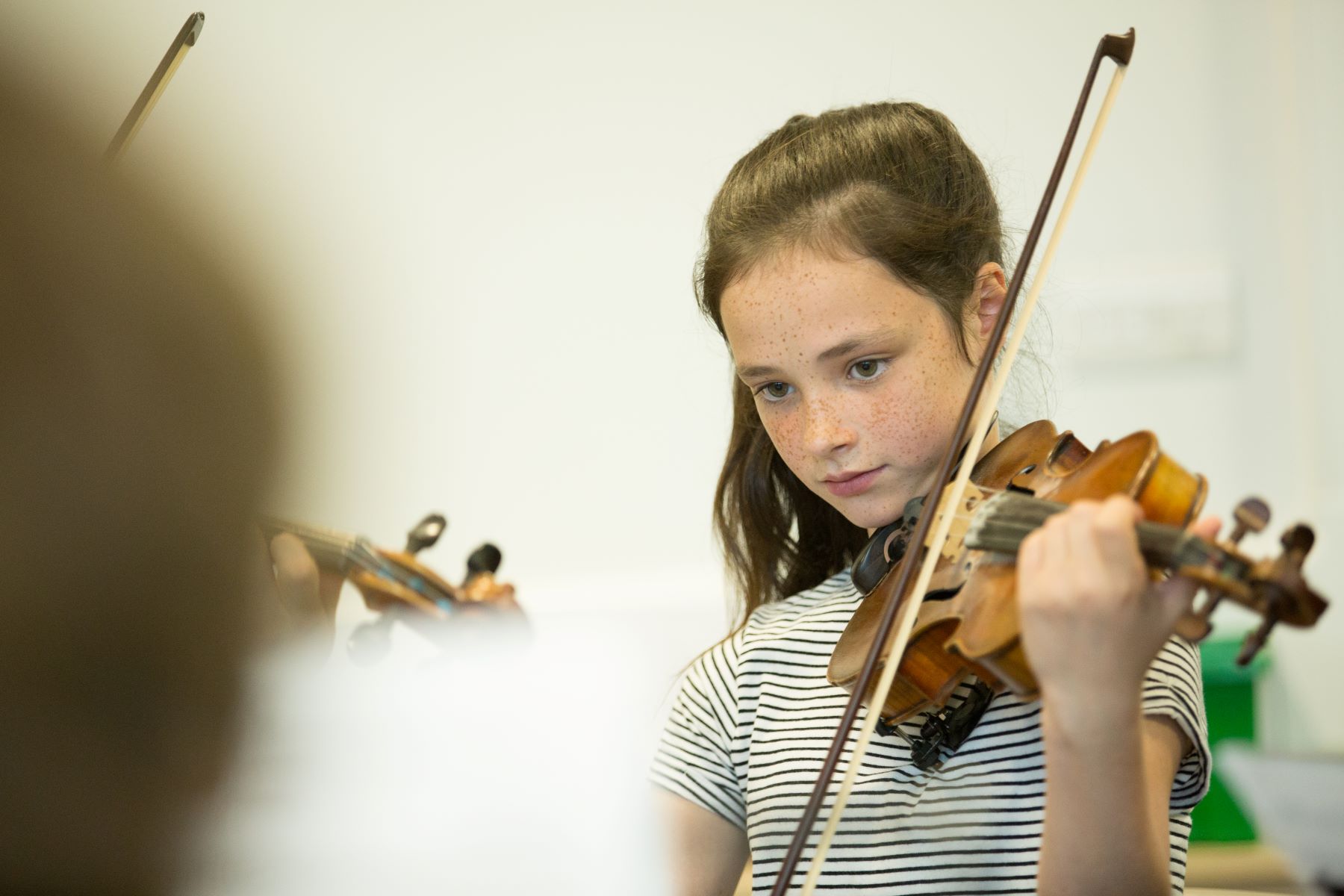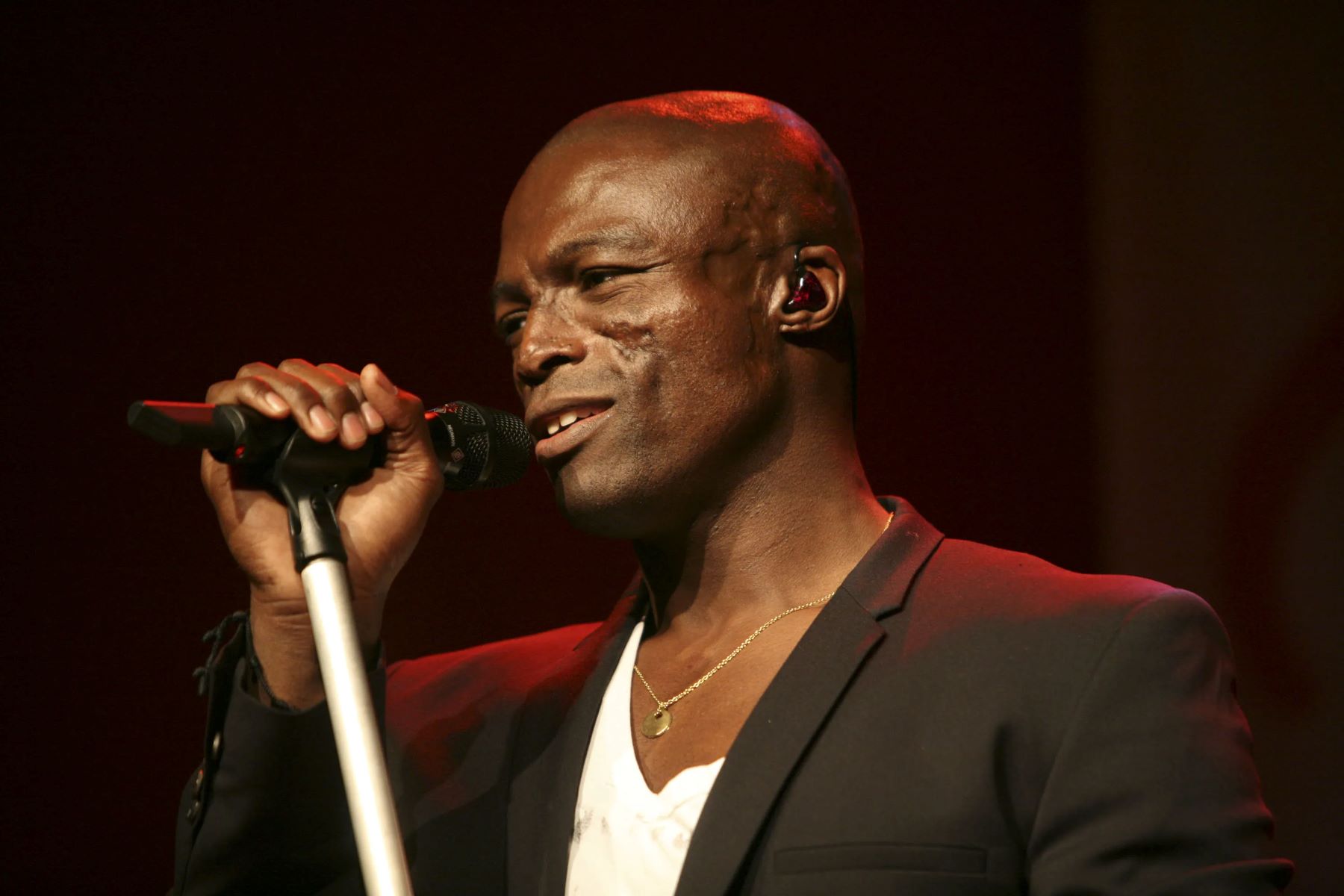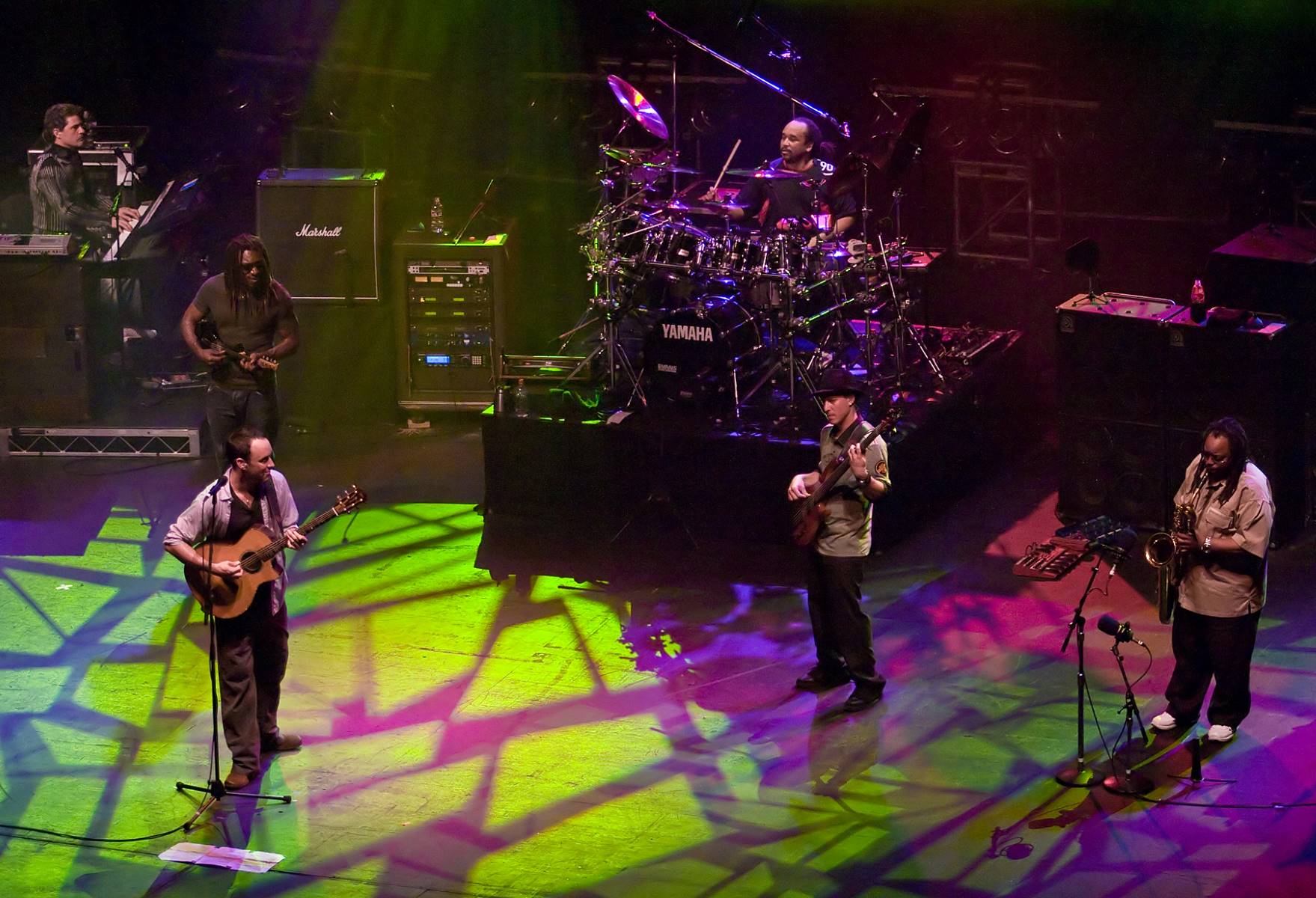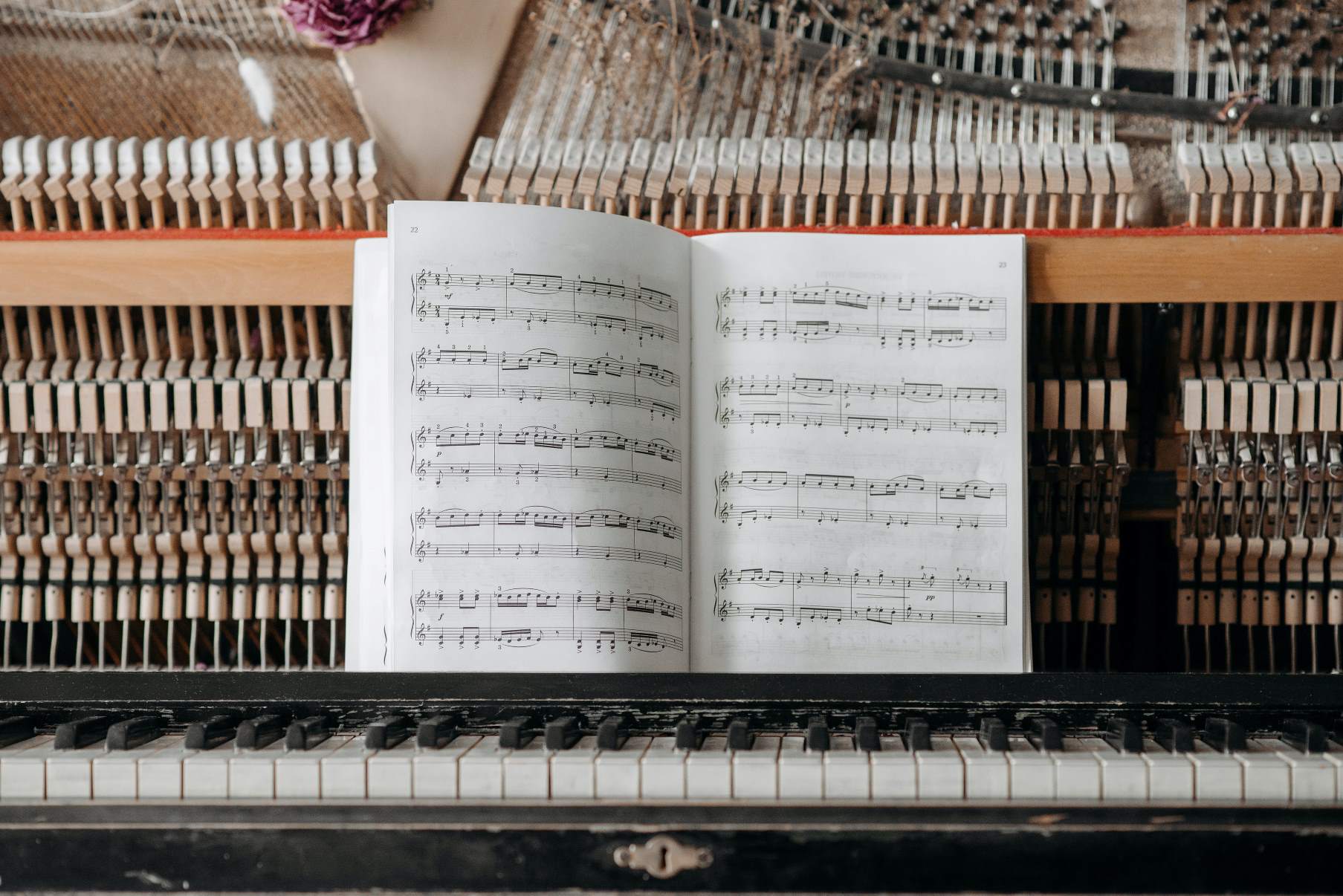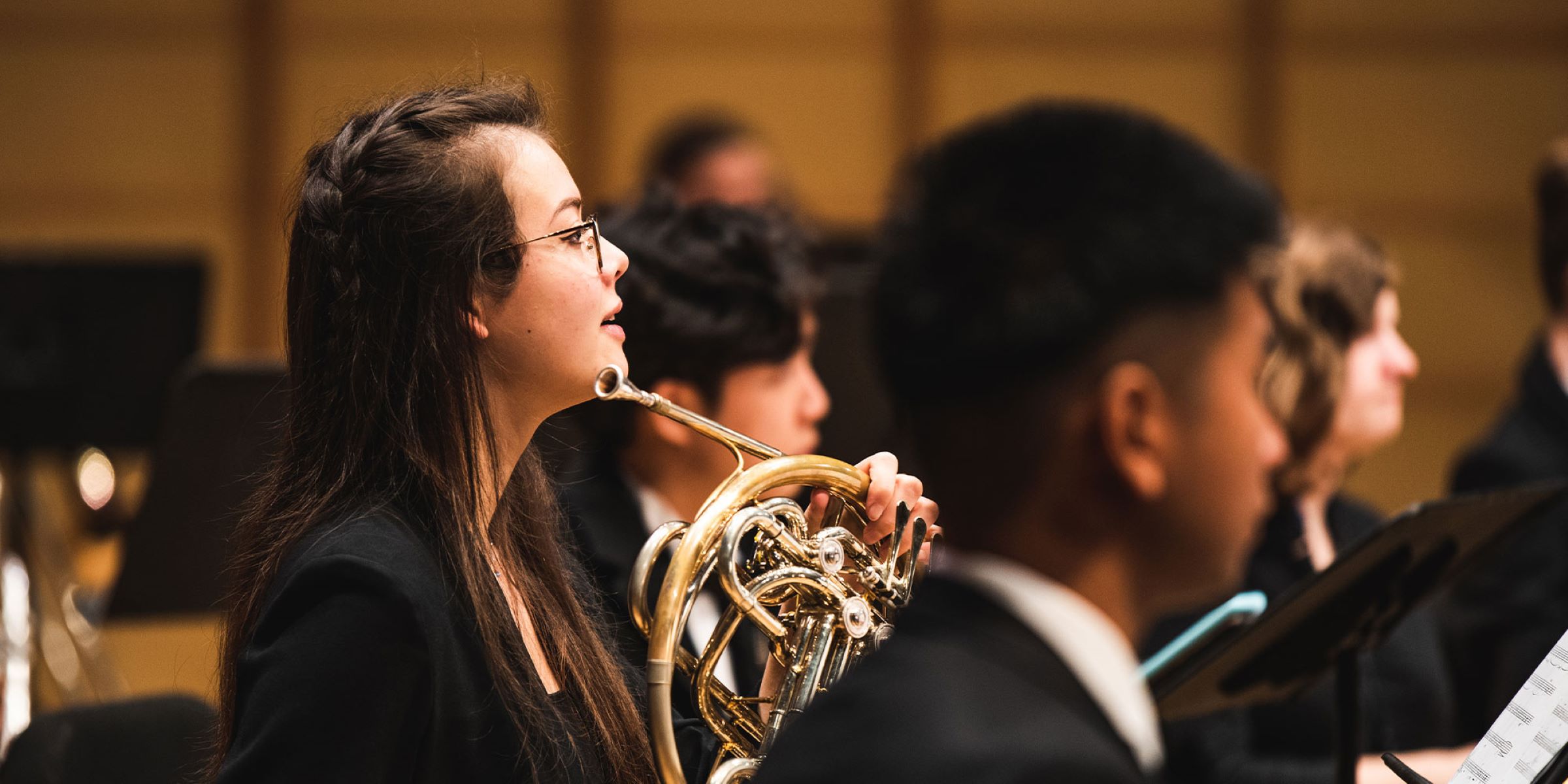Home>Production & Technology>Musician>What Is A Musician


Musician
What Is A Musician
Published: January 28, 2024
Discover the true essence of being a musician and explore the passion, dedication, and artistry that defines this captivating profession.
(Many of the links in this article redirect to a specific reviewed product. Your purchase of these products through affiliate links helps to generate commission for AudioLover.com, at no extra cost. Learn more)
Table of Contents
Introduction
Music brings joy, emotion, and a sense of connection to our lives. Behind every captivating melody and soul-stirring rhythm, there is a skilled and passionate individual who carries the title of a musician. Musicians possess a unique blend of creativity, talent, and technical expertise that allows them to create and perform captivating pieces of art.
From classical composers to rock guitarists, jazz pianists to hip-hop artists, musicians come in various forms and genres, each contributing their own distinct flavor to the world of music. They dedicate countless hours honing their craft, mastering instruments, and perfecting their vocal skills to deliver captivating performances that touch the hearts of their audience.
But being a musician is not just about fame and glamour. It requires dedication, perseverance, and a relentless pursuit of excellence. The life of a musician is not without its challenges, but for those who have a deep passion for music, it is a rewarding and fulfilling journey.
In this article, we will delve into the world of musicians, exploring their skills and talents, the education and training they undergo, the different types of musicians, their roles and responsibilities, the challenges they face, and the importance they hold in society. So, let’s embark on this musical journey and discover what it truly means to be a musician.
Definition of a Musician
A musician can be defined as an individual who creates, performs, and/or interprets music using their voice or a musical instrument. They possess a deep understanding and appreciation for the art of music, and their primary focus is to produce melodies, harmonies, and rhythms that evoke emotions and captivate audiences.
What sets musicians apart is their ability to translate their thoughts and feelings into musical expressions. Whether it’s composing an original piece, improvising on a jazz instrument, or delivering a heartfelt vocal performance, musicians have the remarkable talent to transform abstract ideas into tangible sonic experiences.
Furthermore, musicians possess a strong command of the technical aspects of music, such as music theory, notation, and rhythm. They are able to read and interpret sheet music, understand different musical styles and genres, and employ various techniques to create unique and captivating sounds.
Musicians also have the capacity to adapt and collaborate with other musicians, forming bands, orchestras, choirs, or participating in ensembles. Their ability to synchronize their playing or singing with other musicians is essential in creating a cohesive and harmonious musical experience.
It is important to note that being a musician is not exclusively tied to professional or commercial success. While there are musicians who make a living from their craft, there are also many individuals who pursue music purely for personal enjoyment and self-expression. Whether performing on a grand stage or in the solitude of their own homes, musicians are driven by their passion for music and the desire to connect with others through their artistic expressions.
In essence, a musician is an artist who uses music as their medium for communication, self-expression, and connection. They possess a unique combination of skill, talent, passion, and creativity that allows them to create and share the universal language of music with the world.
Skills and Talents of Musicians
Musicians possess a wide range of skills and talents that enable them to create and perform music at a high level. These skills are developed over time through practice, training, and experience. Here are some of the key skills and talents that musicians possess:
Instrument Proficiency: Musicians are skilled at playing one or more musical instruments. They have a deep understanding of the instrument’s mechanics, techniques, and nuances. Whether it is a piano, guitar, violin, drums, or any other instrument, musicians have the ability to produce beautiful melodies, harmonies, and rhythms.
Vocal Ability: Singers, in particular, possess the talent to use their voice as an instrument. They have the ability to control pitch, tone, and dynamics, allowing them to convey various emotions and interpret songs in a unique and captivating manner.
Music Theory: Musicians have a solid understanding of music theory, which includes concepts such as scales, chords, harmony, rhythm, and notation. This knowledge enables them to compose, arrange, and improvise music effectively. It also allows them to communicate and collaborate with other musicians more efficiently.
Ear Training: Musicians have well-developed ears and can recognize and reproduce musical sounds and melodies. This skill, known as ear training, helps them with tasks like transcribing music, learning songs by ear, and improvising in real-time.
Creative Composition: Musicians have a natural flair for creative composition. They can come up with original melodies, harmonies, and progressions that evoke emotions and resonate with listeners. Composition allows musicians to express their unique musical voice and make a lasting impact in the world of music.
Performance Skills: Musicians excel in the art of performance. They have the ability to engage and captivate audiences through their stage presence, confidence, and charisma. They understand how to connect with their listeners and convey the intended emotions of a piece through their playing or singing.
Collaboration and Adaptability: Musicians thrive in collaborative settings and can adapt to different musical environments. They can play in bands, orchestras, or ensembles, seamlessly blending their playing with other musicians. This skill requires active listening, coordination, and the ability to synchronize with others.
Emotional Intelligence: Musicians possess a high level of emotional intelligence, allowing them to convey and evoke emotions through their music. They understand how to infuse their performances with the appropriate musical expressions, dynamics, and phrasing to create a powerful and moving experience.
Continuous Learning: Finally, musicians have a mindset of continuous learning and improvement. They are always seeking to expand their musical knowledge, explore new techniques, and challenge themselves creatively. This dedication to growth ensures that musicians continue to evolve and refine their skills throughout their musical journey.
Musicians combine these skills and talents to create music that speaks to the hearts of their audience. Their ability to express emotions, tell stories, and inspire through their art is what sets them apart and makes them an indispensable component of the world of music.
Education and Training for Musicians
Education and training play a crucial role in the development and success of musicians. While some musicians are self-taught, many choose to pursue formal education to refine their skills, broaden their musical knowledge, and gain a competitive edge in the industry. Here are some avenues for education and training that musicians commonly pursue:
Music Lessons: Many musicians start their musical journey by taking private lessons with a qualified instructor. These lessons provide a solid foundation in music theory, technique, and repertoire specific to the chosen instrument or vocal style. Regular practice and guidance from an experienced teacher help musicians build a strong technical and musical base.
Music Schools and Conservatories: Music schools and conservatories offer comprehensive programs in music education. They provide a structured curriculum that covers a wide range of subjects, including music theory, ear training, history, ensemble performance, and more. Students can pursue degrees or diplomas in music performance, composition, music education, or other specialized areas.
College and University Programs: Many colleges and universities offer degrees in music, ranging from Bachelor’s to Master’s and Doctoral levels. These programs provide a well-rounded education in music, combining theory, history, performance, and composition. Students have opportunities to study with renowned faculty, participate in ensembles, and gain practical experience through internships or concerts.
Online Music Courses: With the advent of technology, online music courses have become increasingly popular. Platforms such as Coursera, Berklee Online, and Udemy offer a wide range of courses in music theory, composition, music production, and performance. These flexible and accessible options allow musicians to learn at their own pace and from the comfort of their homes.
Workshops and Masterclasses: Musicians often seek additional training and inspiration through workshops and masterclasses. These events provide opportunities to learn from renowned musicians, industry professionals, and experts in specific musical genres or techniques. Participants can receive personalized feedback, gain valuable insights, and network with fellow musicians.
Performance Experience: One of the most crucial aspects of a musician’s education is acquiring performance experience. Playing in school bands, community ensembles, or participating in local concerts and competitions helps musicians develop their stage presence, confidence, and musicianship. It also provides a platform to showcase their talent and receive feedback from audiences and fellow musicians.
Continuing Education and Professional Development: Learning as a musician is a lifelong journey. Even after completing formal education, musicians continue to seek opportunities for continuing education and professional development. They attend workshops, conferences, and masterclasses, collaborate with other musicians, and explore new musical genres and styles to keep their skills sharp and expand their artistic horizons.
It is important to note that while formal education can provide a solid foundation, practical experience, dedication, and self-motivated practice are equally important for a musician’s growth and success. Musicians must continuously strive to push their boundaries, experiment with new approaches, and stay engaged in the ever-evolving world of music.
Different Types of Musicians
The world of music is incredibly diverse, and it encompasses a wide range of genres, styles, and specialties. As a result, there are numerous types of musicians, each with their own set of skills and roles. Here are some of the different types of musicians you may encounter:
Classical Musicians: Classical musicians specialize in performing and interpreting music from the classical tradition. They often play in orchestras, chamber ensembles, or as soloists, showcasing their skills and expertise on instruments such as the violin, piano, cello, or flute. Classical musicians are highly trained in music theory and are known for their technical precision and ability to bring complex compositions to life.
Popular Musicians: Popular musicians, also known as contemporary musicians, span a wide range of genres that include pop, rock, country, hip-hop, and more. They create and perform music that appeals to a broad audience, often using electric guitars, keyboards, drums, or their vocals. Popular musicians may form bands, solo acts, or collaborate with other artists to produce chart-topping hits and memorable performances.
Jazz Musicians: Jazz musicians specialize in the improvisational and rhythmic elements of music. They often play instruments such as the saxophone, trumpet, piano, or double bass and are known for their ability to create unique and expressive solos within the context of a jazz ensemble. Jazz musicians often perform in clubs, festivals, and concerts, showcasing their skills in syncopation, swing, and harmonic complexity.
Folk Musicians: Folk musicians draw inspiration from traditional folk music, often shared within specific cultures or regions. They play acoustic instruments such as the guitar, banjo, or fiddle and sing songs rooted in storytelling and cultural heritage. Folk musicians frequently perform at intimate venues like coffeehouses, folk festivals, and community gatherings, connecting with audiences through heartfelt and authentic music.
Session Musicians: Session musicians are highly skilled performers who are hired to contribute to recordings or live performances by other artists. They possess exceptional sight-reading abilities and adapt quickly to various musical styles and genres. Session musicians may play multiple instruments and are sought after for their versatility and ability to enhance the overall sound of a recording or live show.
Conductors: Conductors are musicians who wield the baton and lead orchestras or choirs. They are responsible for interpreting musical scores, guiding the musicians through rehearsals and performances, and shaping the overall musical expression. Conductors play a crucial role in ensuring synchronization, dynamics, and interpretation among the ensemble members, resulting in cohesive and compelling performances.
Composers and Songwriters: Composers and songwriters are musicians who create original music. They possess the ability to craft melodies, harmonies, and lyrics that evoke emotions and tell stories. Composers may write music for orchestras, chamber ensembles, film scores, or other mediums, while songwriters often create music for popular genres. Their work lays the foundation for performances and recordings by other musicians.
Music Educators: Music educators are musicians who specialize in teaching others about the art of music. They work in schools, colleges, private music studios, or community organizations, sharing their knowledge and skills with students of all ages. Music educators play a vital role in nurturing the next generation of musicians and fostering an appreciation for music in society.
This is just a glimpse into the diverse world of musicians, and many musicians often span multiple genres or styles, defying categorization. Regardless of the type, all musicians share a common passion for creating and sharing music, contributing to the rich tapestry of musical expressions that enhance our lives.
Roles and Responsibilities of Musicians
Musicians play multifaceted roles and carry diverse responsibilities in the world of music. Their contributions extend beyond simply performing on stage or recording in the studio. Here are some of the key roles and responsibilities of musicians:
Performers: One of the primary roles of musicians is to perform live for audiences. Whether on a grand concert stage, in intimate venues, or in front of a camera for virtual performances, musicians have the responsibility to deliver captivating and high-quality musical experiences. They must engage with their audience, convey emotions through their performances, and create an atmosphere that leaves a lasting impact.
Creators: Musicians are creators who compose, arrange, and produce music. They have the responsibility to develop original compositions or breathe new life into existing pieces. Musicians bring their unique artistic vision to their creations, combining melody, harmony, rhythm, and lyrics to produce captivating and thought-provoking music.
Interpreters: Musicians also serve as interpreters of music, bringing their own artistic nuances and interpretations to existing musical works. They have the responsibility to study and understand the intentions of the composer or songwriter in order to convey the intended emotions and messages of the music to their audience.
Collaborators: Collaboration is a vital aspect of a musician’s role. Musicians often work together with other musicians, producers, engineers, and songwriters to create the best possible musical outcomes. They must effectively communicate, listen, and adapt their playing or singing to work harmoniously with others, enhancing the overall sound and impact of the music they create.
Educators: Many musicians also take on the role of educators. They have the responsibility to pass on their knowledge, skills, and passion for music to aspiring musicians. Whether teaching in schools, private lessons, or workshops, musicians inspire and guide students, nurturing their talents and helping them grow as musicians.
Music Advocates: Musicians often play a vital role as advocates for the arts. They have the responsibility to promote the value and importance of music in society. Through their performances, interviews, and social media presence, musicians raise awareness about the power of music, advocate for better support and funding for the arts, and use their platform to positively impact communities.
Continual Learners: Musicians are lifelong learners, constantly seeking to improve their craft and expand their musical horizons. They have the responsibility to invest time and effort in practicing, studying, and exploring new techniques and genres. By continually honing their skills, musicians stay relevant and continue to evolve as artists.
Entertainers and Emotional Communicators: Musicians have the responsibility to entertain and connect with their audience on an emotional level. Whether through a lively and energetic performance or a deeply moving ballad, musicians create and deliver music that resonates with listeners, providing them with an escape, inspiration, or solace.
These roles and responsibilities highlight the multifaceted nature of being a musician. Musicians not only bring joy and beauty through their performances but also contribute to the cultural fabric of society, inspire future generations, and use their artistry to shape and influence the world around them.
Challenges Faced by Musicians
While being a musician can be incredibly rewarding, it is not without its share of challenges. Musicians confront various obstacles throughout their careers that can test their resilience and determination. Here are some of the common challenges faced by musicians:
Fierce Competition: The music industry is highly competitive, with countless talented individuals vying for limited opportunities. Musicians face the challenge of standing out and proving their worth among a sea of talented peers. Building a unique artistic identity and finding avenues for recognition can be an ongoing struggle.
Financial Instability: Many musicians face financial instability as they navigate their careers. Inconsistent income, especially for freelance musicians, can make financial planning difficult. Challenges in securing steady gigs or income streams, especially during unforeseen circumstances like pandemics or economic downturns, can impact a musician’s financial well-being.
Self-Promotion: Musicians often find themselves responsible for self-promotion and marketing. In an era of digital media and social platforms, musicians need to build their brand, engage with fans, and find creative ways to promote their music. Balancing artistic integrity with the demands of self-promotion can be challenging for musicians.
Mental and Emotional Strain: The pressure to consistently produce high-quality music, handle performance nerves, and cope with the highs and lows of a competitive industry can take a toll on a musician’s mental and emotional well-being. Self-doubt, anxiety, and burnout are common challenges that musicians encounter and must address to maintain a healthy mindset.
Rejection and Criticism: Musicians often experience rejection and criticism, both in the pursuit of opportunities and from audiences or reviewers. Navigating through rejection and learning from constructive criticism can be emotionally challenging. Developing resilience and a healthy perspective towards feedback is crucial for a musician’s growth.
Physical Demands: Performing music is physically demanding, especially for instrumentalists or vocalists who may experience strain, fatigue, or repetitive stress injuries. Playing for extended periods, carrying heavy instruments, and maintaining vocal health all pose challenges that musicians must address through proper technique, conditioning, and self-care.
Balancing Artistic Integrity and Commercial Success: Musicians often face the challenge of balancing their artistic vision with the demands of the commercial music industry. The pressure to conform to popular trends or produce commercially successful music while maintaining their artistic integrity can be a delicate balance. Finding the right balance is key to sustaining a fulfilling and successful career.
Time Management: Musicians need to juggle multiple commitments, including practicing, performing, networking, promoting, and possibly other jobs or responsibilities. Effective time management, prioritization, and finding a healthy work-life balance can be challenging for musicians, particularly when facing tight deadlines or conflicting obligations.
Adapting to Technological Advancements: The music industry continues to evolve rapidly due to technological advancements. Musicians must stay updated with recording techniques, digital platforms for distribution, and social media trends. Adapting to these changes and leveraging technology effectively can be a challenge for many musicians, particularly those from older generations.
Long-Term Sustainability: Sustaining a viable career in music requires long-term planning and adaptability. Musicians need to navigate changing industry landscapes, diversify income streams, and continually find new opportunities for growth. Developing a sustainable and resilient career path is an ongoing challenge.
Despite these challenges, musicians are driven by their passion and love for music. Overcoming these obstacles requires perseverance, honing of skills, building a supportive network, and adopting a resilient mindset. Finding personal fulfillment and making a positive impact through their music makes it all worthwhile for dedicated musicians.
Importance of Musicians in Society
Music plays a significant role in society, and musicians hold a special place in the cultural fabric of our communities. They contribute in numerous ways that enrich our lives and bring people together. Here are some of the key reasons why musicians are important in society:
Emotional Expression and Connection: Musicians have the unique ability to express emotions and connect with their audiences on a profound level. Through their music, they evoke feelings of joy, sadness, excitement, or nostalgia, providing an outlet for emotional expression. Music has the power to transcend language and cultural barriers, fostering a sense of unity and understanding among people from different backgrounds.
Preservation of Culture and Heritage: Musicians play a vital role in preserving cultural traditions and heritage. They preserve and revitalize traditional music, ensuring that cultural identities and stories are passed down through generations. Musicians draw from their cultural roots, incorporating indigenous instruments and musical styles, which helps to maintain cultural diversity and foster appreciation for different traditions.
Entertainment and Celebration: Musicians provide entertainment and play a central role in celebrations and events. They create an atmosphere of joy and celebration, igniting a sense of communal spirit during concerts, festivals, weddings, and other gatherings. Music brings people together, creating shared experiences and special memories that can last a lifetime.
Social Commentary and Advocacy: Musicians often use their platform to address social issues and advocate for positive change. Through their lyrics, they shed light on important topics such as social justice, inequality, environmental concerns, and political unrest. Musicians can inspire dialogue, challenge societal norms, and motivate listeners to take action, making them influential voices for social awareness and advocacy.
Catharsis and Healing: Music has a therapeutic effect on individuals and society as a whole. Musicians create music that provides solace, comfort, and healing during difficult times. Whether it is a soothing melody, a powerful anthem, or a heartfelt ballad, music has the power to uplift spirits, offer catharsis, and bring a sense of hope and resilience to those who listen.
Economic Contribution: The music industry is a significant contributor to the economy, generating employment opportunities and stimulating various sectors such as recording studios, concert venues, music festivals, and merchandise. Musicians play a pivotal role in driving economic growth and creating job opportunities within the music and entertainment industry.
Inspiration and Role Models: Musicians serve as role models and inspire others to pursue their passions and dreams. Their dedication, creativity, and pursuit of excellence in their craft motivate emerging musicians and aspiring artists to embrace their own artistic journey. Musicians often serve as beacons of inspiration, showing what is possible through hard work, resilience, and staying true to one’s artistic vision.
Education and Mentorship: Many musicians take on the role of educators and mentors, sharing their knowledge and experiences with aspiring musicians. They provide guidance, mentorship, and opportunities for growth, nurturing the next generation of musical talent. Music education, facilitated by musicians, helps to develop critical thinking skills, creativity, and a deep appreciation for the arts among students.
Musicians have an extraordinary ability to touch people’s lives, evoke emotions, stimulate discussions, and foster a sense of belonging. Their contributions to society extend far beyond just the notes they play or the songs they sing. Musicians are custodians of cultural traditions, catalysts for change, and providers of joy and solace, making them an indispensable part of our collective human experience.
Conclusion
Musicians, with their immense talent, creativity, and dedication, enrich our lives in countless ways. They provide a soundtrack to our experiences, evoke emotions, and forge connections across cultures and generations. Their skills, honed through education and training, allow them to create and perform music that resonates deeply with audiences.
Throughout this article, we have explored the various facets of being a musician. We have delved into their skills and talents, the challenges they face, their roles and responsibilities, and their importance in society. From classical virtuosos to contemporary pop icons, musicians come in diverse forms, each making a unique contribution to the world of music.
Musicians undergo extensive education and training, giving them the tools to master their instruments and develop their musicality. They continually strive for excellence, pushing their boundaries and seeking growth. Along this journey, they encounter challenges, including fierce competition, financial instability, and the constant need to balance artistic integrity with commercial success.
Yet, musicians play an integral role in society. They have the power to express emotions, preserve cultural heritage, entertain, advocate for social change, and inspire others. They bring people together, fostering a sense of unity and connection through their performances and compositions.
Music, created and performed by musicians, has the ability to heal, uplift spirits, and provide solace. It serves as a form of communication, transcending language and cultural barriers, touching the deepest parts of the human experience. Musicians contribute to the economic growth of the music industry and serve as mentors, nurturing the next generation of musical talent.
In conclusion, musicians are more than just individuals who play instruments or sing songs. They are artists, storytellers, cultural preservers, advocates, and inspirations. The world of music is enriched by their passion, talent, and dedication. So, let us appreciate and support musicians as they continue to create the melodies that shape our lives and bring beauty and meaning to our world.

